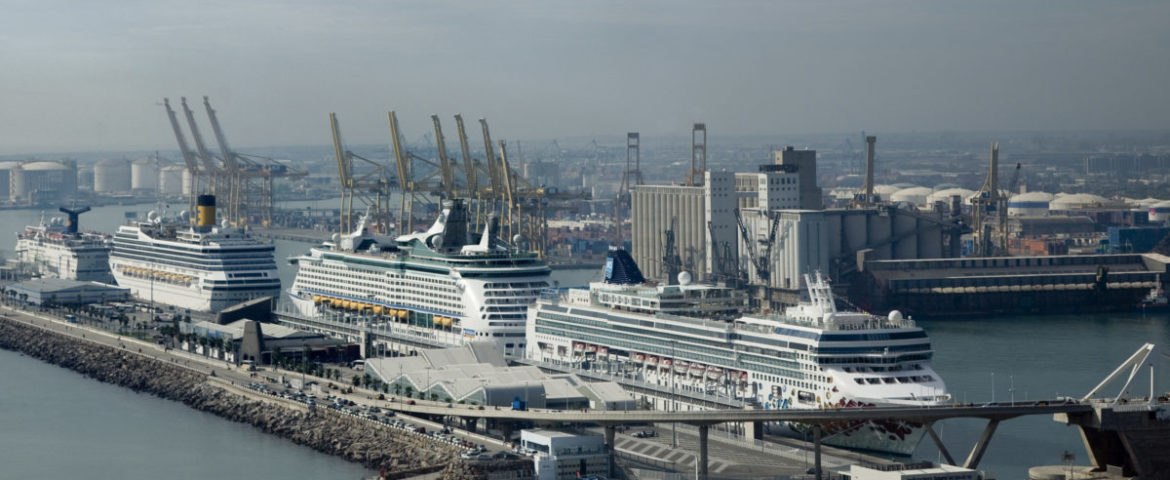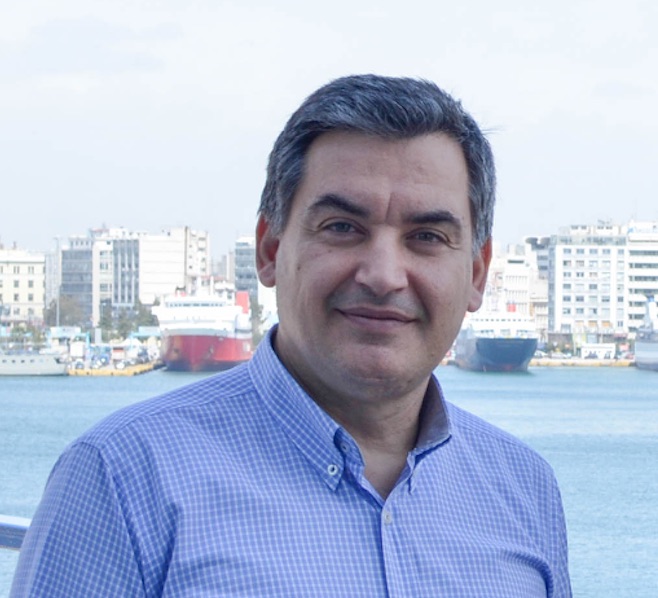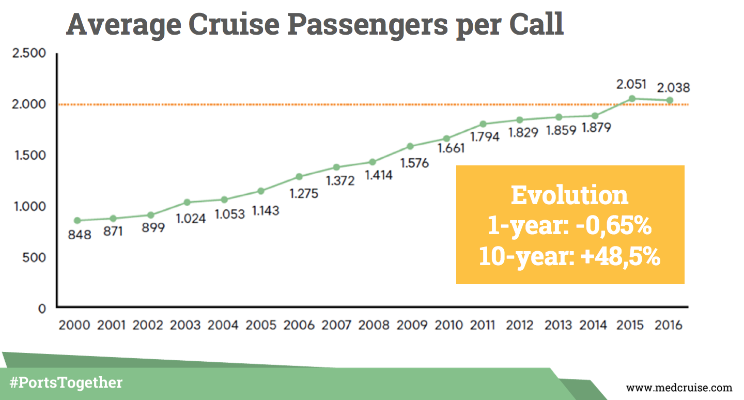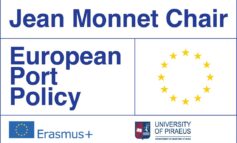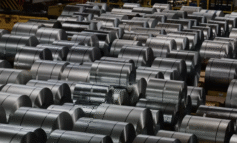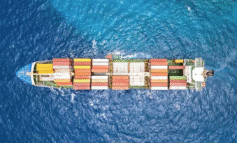In 2016, cruise ports in the Med hosted efficiently and effectively over 13.000 cruise calls with the average number of pax/call exceeding for a second time in history 2.000 pax. At the turn of the century this average was standing at just 848 pax/call.
In 2016, the total number of cruise passenger visits at cruise ports in the Med and its adjoining seas exceeded 27 million passenger movements. Comparing to the previous year, this number is 1,1% lower.
Yet, the long-term trends make evident that cruise activities in the Med are performing remarkably well in a demanding economic context and in some, yet rare, cases uncertain political climate.
The last 10 years (2007- 2016) cruising around the Med experienced growth and resilience in the face of several social, economic and political challenges. The recorded statistical data reflect this resilience.
Cruise passenger movements of 2016 total 800.000 more than those that had taken place in 2012, 8 million more than those that had happened a decade before (2006), and an extraordinary 19.000.000 more than the pax movements that were recorded at the turn of the century (2000).
Ports have evidently reacted in a most positive way to this increasing demand – not least because they managed to respond to the challenges imposed by the associated economies of scale.
In 2016, cruise ports in the Med hosted efficiently and effectively over 13.500 cruise calls with the average number of pax/call exceeding for a second time in history 2.000 pax. At the turn of the century this average was standing at just 848 pax/call (Figure 1).
While the standard deviation from this average should not be ignored – with West Med and the Adriatic cruise ports serving bigger vessels than the East Med and the Black Sea – the achievement should not be underestimated
The standard deviation from this average should not be ignored. In terms of regions, the West Med and the Adriatic cruise ports serving bigger vessels than the East Med and the Black Sea (Figure 2). In terms of cruise ports, the average number of pax/call also varies (Figure 3). Yet, the achievement should not be underestimated
Cruise shipping continues to grow and enjoy profitable business development, by deploying approximately 20% of its global capacity in the Med without port infrastructure standing as a major impediment.
And as cruise vessels of bigger size continue to be ordered, cruise ports continue to plan several major upgrades to serve them – stay tuned for more on this.



